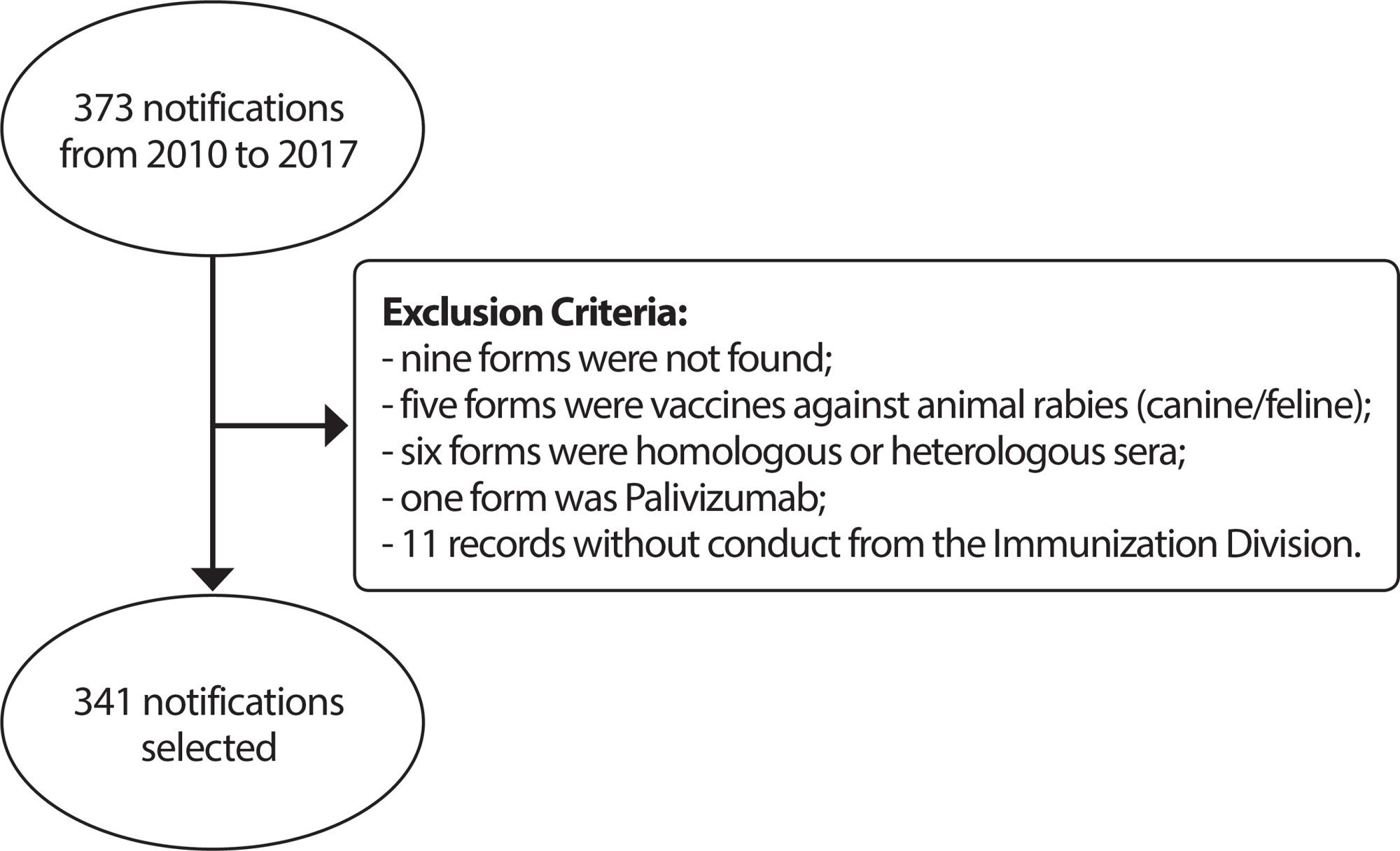-
ARTIGO ORIGINAL
Standard Operating Procedure validity on intramuscular vaccine administration in adults: a methodological study
Revista Brasileira de Enfermagem. 2023;76(4):e20220692
10-09-2023
Abstract
ARTIGO ORIGINALStandard Operating Procedure validity on intramuscular vaccine administration in adults: a methodological study
Revista Brasileira de Enfermagem. 2023;76(4):e20220692
10-09-2023DOI 10.1590/0034-7167-2022-0692
Views0See moreABSTRACT
Objective:
to validate a Standard Operating Procedure on the intramuscular vaccine administration technique in adults using high frequency vibration associated with cryotherapy.
Methods:
a literature review on intramuscular vaccination practice using a vibration device associated with cryotherapy. Then, a form was created to validate the instrument, detailing the items that were assessed by judges following recommendations in the literature. Judges’ answers were assessed using the Content Validity Index, with items whose index was greater than or equal to 0.80 being validated.
Results:
twenty-five nurses participated in validity, identifying judges’ opinion regarding item relevance, clarity and accuracy. Judges validated the instrument, according to the values that remained between 0.88 and 1.0.
Conclusions:
the instrument developed and validated is a tool capable of guaranteeing safety and standardizing immunization practice in vaccine rooms.
-
ORIGINAL ARTICLE
Analysis of vaccine loss due to temperature change
Revista Brasileira de Enfermagem. 2021;74(1):e20190762
02-22-2021
Abstract
ORIGINAL ARTICLEAnalysis of vaccine loss due to temperature change
Revista Brasileira de Enfermagem. 2021;74(1):e20190762
02-22-2021DOI 10.1590/0034-7167-2019-0762
Views0See moreABSTRACT
Objectives:
to analyze vaccine losses in a Health Region in the Northwest of São Paulo.
Methods:
retrospective cross-sectional study with secondary data obtained from Temperature Change Notification Forms used by the Epidemiological Surveillance Group XXIX of São José do Rio Preto between 2010 and 2017. Descriptive and inferential analysis were performed using multiple linear regression and significance level of 95%.
Results:
in total, 341 notifications of temperature changes were analyzed, of which 70.1% were caused by structural reasons, 57.8% in industrial refrigerators and 91.2% in primary care services. Of the doses that suffered a change in temperature, 41.4% were lost and 58.6% were administered to the population. The highest percentage of lost doses compared to those applied occurred in smaller municipalities, although they reported less.
Conclusions:
nursing workers who work in vaccination rooms should make efforts to prevent temperature changes and avoid losses and higher public expenses.

-
ORIGINAL ARTICLE
Collective construction of bundle for immunobiological agents conservation best practices
Revista Brasileira de Enfermagem. 2019;72(3):671-679
06-27-2019
Abstract
ORIGINAL ARTICLECollective construction of bundle for immunobiological agents conservation best practices
Revista Brasileira de Enfermagem. 2019;72(3):671-679
06-27-2019DOI 10.1590/0034-7167-2018-0406
Views0See moreABSTRACT
Objective:
to construct collectively with nursing professionals bundle for best practices of cold chain maintenance of immunobiological agents conservation at the local level.
Method:
a qualitative research of convergent care type. Bundle construction was guided by the Evidence-Based Practice criterion. Data collection was carried out from October to December 2016, through five workshops, with the participation of 21 professionals from 7 vaccination rooms of a municipality of Minas Gerais State. The framework developed by Morse and Field was adopted for data analysis.
Results:
through bundle, care is taken regarding refrigeration equipment temperature monitoring, contingency plan performance, recyclable ice coil setting and chamber use as refrigeration equipment.
Final considerations:
the chosen interventions began to guide the practice and promote a care based on safety and quality.
-
PESQUISA
Weaknesses of vaccine storage in Primary Healthcare Centers
Revista Brasileira de Enfermagem. 2015;68(2):291-296
01-01-2015
Abstract
PESQUISAWeaknesses of vaccine storage in Primary Healthcare Centers
Revista Brasileira de Enfermagem. 2015;68(2):291-296
01-01-2015DOI 10.1590/0034-7167.2015680215i
Views0See moreABSTRACT
Objective:
assessment through qualitative approach of vaccine storage in Primary Healthcare Centers.
Method:
assessment study of qualitative approach in which 30 interviews were conducted with nurses, nursing technicians or assistants and technical reference in immunization, in 12 vaccine rooms that had 100% of the structural criteria evaluated. Recorded testimonials of the subjects were organized and analyzed using thematic Content Analysis.
Results:
the assessment pointed to absence of knowledge on the parts of nurses and nursing technicians and assistants with respect to the effects of low temperature on vaccines. Barriers were also encountered in relation to the supervision of nurses in the vaccine room activities and in relation to the knowledge needed by workers to care for preservation of vaccines.
Conclusion:
vaccine storage is inadequate and may compromise the quality of the immunobiologicals dispensed to the populace.



